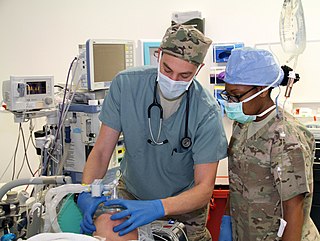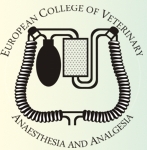
Veterinary medicine is the branch of medicine that deals with the prevention, management, diagnosis, and treatment of disease, disorder, and injury in animals. Along with this, it deals with animal rearing, husbandry, breeding, research on nutrition, and product development. The scope of veterinary medicine is wide, covering all animal species, both domesticated and wild, with a wide range of conditions that can affect different species.

A veterinarian (vet) is a medical professional who practices veterinary medicine. They manage a wide range of health conditions and injuries in non-human animals. Along with this, veterinarians also play a role in animal reproduction, health management, conservation, husbandry and breeding and preventive medicine like nutrition, vaccination and parasitic control as well as biosecurity and zoonotic disease surveillance and prevention.

An avian veterinarian is a veterinarian who specializes in treating birds. All veterinarians, upon first qualification from a certified veterinary college, may treat any species. Additional training is required for qualification to become a recognized specialist in the care of birds.

Anesthesiology, anaesthesiology, or anaesthesia is the medical specialty concerned with the total perioperative care of patients before, during and after surgery. It encompasses anesthesia, intensive care medicine, critical emergency medicine, and pain medicine. A physician specialized in anesthesiology is called an anesthesiologist, anaesthesiologist, or anaesthetist, depending on the country. In some countries, the terms are synonymous, while in other countries they refer to different positions, and anesthetist is only used for non-physicians, such as nurse anesthetists.

The American Veterinary Medical Association (AVMA), founded in 1863, is a not-for-profit association representing more than 99,500 veterinarians in the US.
A veterinary specialist is a veterinarian who specializes in a clinical field of veterinary medicine.
Zoological medicine refers to the specialty of veterinary medicine that addresses the care of captive zoo animals, free ranging wildlife species, aquatic animals, birds, reptiles and amphibians, and includes non-domestic companion animals. Zoological medicine incorporates principles of ecology, wildlife conservation, and veterinary medicine, and applies them to wild animals in natural and artificial environments. As a specialty of veterinary medicine in the United States, the American Veterinary Medical Association (AVMA) has recognized the College of Zoological Medicine as the governing body of this specialty field since 1983. As such, zoological medicine is equivalent to other subspecialties of veterinary medicine, which are recognized and governed by their particular colleges.

Veterinary education is the tertiary education of veterinarians. To become a veterinarian, one must first complete a degree in veterinary medicine.

Veterinary surgery is surgery performed on animals by veterinarians, whereby the procedures fall into three broad categories: orthopaedics, soft tissue surgery, and neurosurgery. Advanced surgical procedures such as joint replacement, fracture repair, stabilization of cranial cruciate ligament deficiency, oncologic (cancer) surgery, herniated disc treatment, complicated gastrointestinal or urogenital procedures, kidney transplant, skin grafts, complicated wound management, and minimally invasive procedures are performed by veterinary surgeons. Most general practice veterinarians perform routine surgeries such as neuters and minor mass excisions; some also perform additional procedures.

Dehorning is the process of removing the horns of livestock. Cattle, sheep, and goats are sometimes dehorned for economic and safety reasons. Disbudding is a different process with similar results; it cauterizes and thus destroys horn buds before they have grown into horns. Disbudding is commonly performed early in an animal's life, as are other procedures such as docking and castration. In some cases, it can be unnecessary.

The American Animal Hospital Association (AAHA) is a non-profit organization for companion animal veterinary hospitals. Established in 1933, the association is the only accrediting body for small animal hospitals in the U.S. and Canada. The association develops standards for veterinary business practices, publications, and educational programs. Any veterinary hospital can join AAHA as a member, but must then pass an evaluation in order to receive AAHA accreditation.
Veterinary anesthesia is anesthesia performed on non-human animals by a veterinarian or a Registered Veterinary Technician. Anesthesia is used for a wider range of circumstances in animals than in people, due to animals' inability to cooperate with certain diagnostic or therapeutic procedures. Veterinary anesthesia includes anesthesia of the major species: dogs, cats, horses, cattle, sheep, goats, and pigs, as well as all other animals requiring veterinary care such as birds, pocket pets, and wildlife.
American College of Zoological Medicine was established in 1983 as an international specialty organization of veterinarians with special expertise in zoological medicine.

Daniel Simon Mills, FRCVS is an English veterinarian and biologist and the UK's first Professor of Veterinary Behavioural Medicine based at the University of Lincoln, United Kingdom. He attended St Edmund's College, Ware before studying at the University of Bristol where he received his BVSc degree and completed his Ph.D. degree in animal behaviour from De Montfort University.

Paraveterinary worker is the professional of veterinary science that performs procedures autonomously or semi autonomously, as part of a veterinary assistance system. The job role varies throughout the world, and common titles include veterinary nurse, veterinary technician and veterinary assistant, and variants with the prefix of 'animal health'.

The American College of Veterinary Surgeons (ACVS) is the specialty board that defines the standards of surgical excellence for the field of veterinary medicine, promotes advancements in veterinary surgery, and provides the latest in veterinary surgical educational programs. The ACVS is responsible for overseeing the training, examination, and certification of board-certified veterinary surgeons.

Veterinary medicine in the United States is the performance of veterinary medicine in the United States, normally performed by licensed professionals, and subject to provisions of statute law which vary by state. Veterinary medicine is normally led by veterinary physicians, termed veterinarians or vets, but also by paraveterinary workers, such as veterinary technicians, and veterinary assistants. This can be augmented by other paraprofessionals with specific specialties, such as animal physiotherapy or dentistry, and species-relevant roles such as farriers.

Stepan Gzhytskyi National University of Veterinary Medicine and Biotechnologies Lviv is a public university located in Lviv, Ukraine.
David Argyle BVMS DECVIM-CA (Oncology) FRSE FRSA FRCVS is Head of the College of Medicine and Veterinary Medicine at the University of Edinburgh.
The American College of Veterinary Anesthesia and Analgesia (ACVAA) is one of 22 veterinary specialist organizations recognized by the American Veterinary Medical Association.














